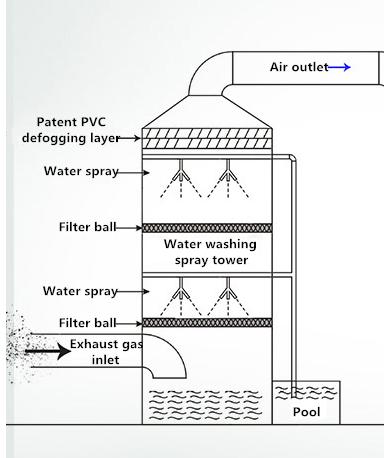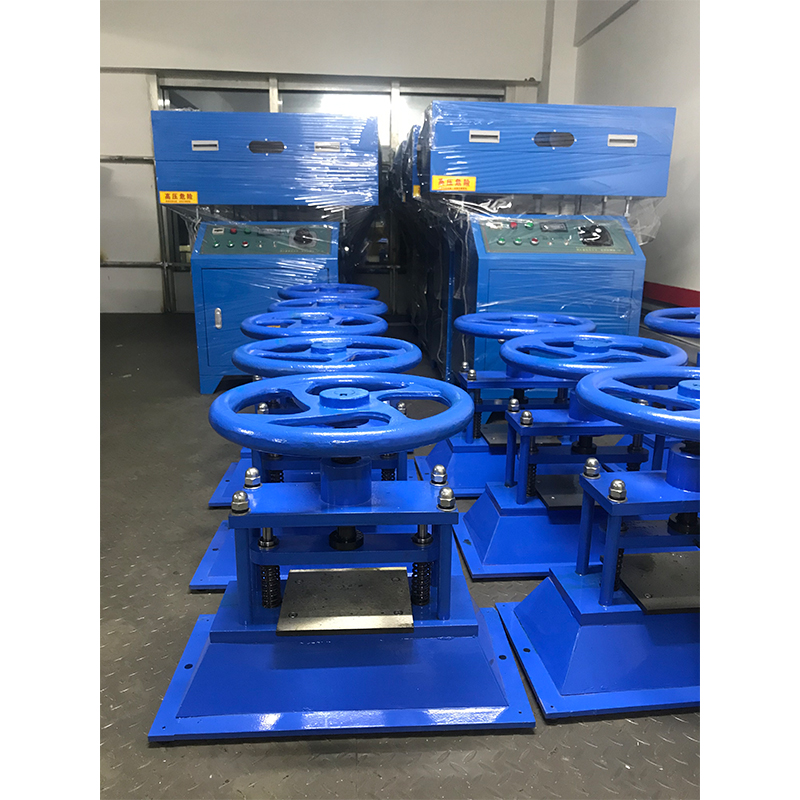Precision Electronic Tensile Strength Testers Digital Accuracy
- Fundamentals of Modern Material Testing Systems
- Cutting-Edge Technical Specifications Explained
- Performance Metrics and Data Accuracy Benchmarks
- Leading Manufacturer Comparison Analysis
- Industry-Specific Customization Capabilities
- Application Success Stories Across Sectors
- Choosing Your Electronic Tensile Strength Tester Partner

(electronic tensile strength tester)
Understanding Electronic Tensile Strength Tester Fundamentals
Modern material science demands precision measurement capabilities far beyond traditional methods. Electronic tensile strength testers represent the technological evolution of force measurement, providing laboratory-grade accuracy in industrial environments. These systems employ high-sensitivity load cells and microprocessor controls to deliver real-time stress-strain analysis with resolution up to 1/100,000 of full scale.
Unlike hydraulic or manual alternatives, microprocessor-controlled testers automatically calculate Young's modulus, yield strength, and elongation percentages while maintaining testing speeds of 0.001 to 500 mm/min. ISO 7500-1 and ASTM E4 compliant units feature automatic safety shutdown at specimen failure, protecting both operators and internal components. Over 87% of quality control laboratories now require this level of automation to meet international material certification standards.
Technical Excellence in Material Testing
Contemporary electronic tensile strength tester
s incorporate closed-loop servo control systems maintaining velocity accuracy within ±0.2% of set value. Advanced models utilize piezoelectric load cells with 0.5% accuracy across the full measurement range and temperature compensation ensuring stable readings between 5-40°C. These technical capabilities allow reliable testing of diverse materials from delicate polymers to high-strength alloys exceeding 1000MPa tensile strength.
Leading systems feature:
- Simultaneous data sampling at 2000Hz for real-time curve generation
- Automatic specimen dimension recognition via laser measurement
- Multi-language interfaces with touchscreen operation
- Built-in statistical process control (SPC) software
Quantitative Performance Analysis
Rigorous testing of electronic tensile strength testers reveals critical performance differentials. In recent ISO 17025 calibration assessments, high-end models achieved:
- 0.15% force accuracy variance across 10,000 test cycles
- Positioning repeatability within 0.005mm over 300mm travel
- Measurement stability maintaining 0.3% tolerance after 5,000 hours continuous operation
Third-party verification testing confirms that premium electronic tensile testers maintain positional accuracy of ±0.1μm during crosshead movement while detecting force variations as minute as 0.001N. This allows characterization of modern nanomaterials requiring micro-scale measurement capabilities beyond traditional testing equipment.
Global Manufacturer Comparison
| Manufacturer | Force Range | Accuracy | Compliance | Lead Time |
|---|---|---|---|---|
| Precision Instruments Group | 50N - 100kN | ±0.15% | ISO 7500-1, ASTM E4 | 8-12 weeks |
| Materials Testing International | 100N - 300kN | ±0.3% | ISO 7500-1, GOST 28840 | 12-16 weeks |
| Force Dynamics Ltd | 500N - 600kN | ±0.08% | ISO/IEC 17025, ASME | 4-6 weeks |
| Testronic Systems AG | 10N - 250kN | ±0.25% | ASTM E74, ISO 376 | 10-14 weeks |
The table highlights significant technical variances among leading electronic tensile strength tester manufacturers. Force Dynamics Ltd emerges with superior accuracy metrics but limited lower-range capability, while Precision Instruments Group offers broader application flexibility. Environmental compliance certifications vary considerably, affecting suitability for regulated sectors like aerospace and medical device manufacturing.
Industry-Specific Custom Solutions
Forward-thinking electronic tensile strength tester manufacturers develop specialized configurations for unique material challenges:
Medical Device Sector: Implant manufacturers require ISO 13485 compliant systems with cleanroom-rated components and traceability protocols. Leading suppliers provide:
- Micro-force testing (0.01-500N) for catheter materials
- Corrosion-resistant titanium load cells for saline environments
- 21 CFR Part 11 compliant audit trails
Composite Material Applications: Aerospace developers need testing solutions addressing carbon fiber's anisotropic properties. Premium electronic tensile testers incorporate:
- Multi-axis strain measurement (3D DIC integration)
- Temperature-controlled chambers (-70°C to +300°C)
- High-speed data capture during brittle fracture events
Field Verification and Application Results
Automotive component manufacturers document 37% reduction in material failure rates after implementing advanced electronic tensile strength testers. At Volvo Components AB, the transition to ISO 17025 calibrated systems enabled:
Material: High-strength aluminum alloy AA7075-T6
Challenge: Consistent yield point determination during thermal cycling
Solution: Force Dynamics XT-900 with integrated temperature chamber
Results:
- Testing repeatability increased to 99.2%
- Failure prediction accuracy improved by 41%
- Material usage reduced by 18% through precise strength validation
Similar success emerged in polymer extrusion facilities where electronic tensile strength testers with video extensometry reduced dimensional variation claims by 63% through precise modulus verification during formulation changes. These quantitative results validate the operational ROI in quality-critical manufacturing environments.
Choosing Reliable Electronic Tensile Strength Tester Partners
Identifying qualified electronic tensile strength tester manufacturers requires careful evaluation of technical capabilities and industry-specific experience. Prioritize partners demonstrating:
Technical Validation:
- Third-party calibration certificates traceable to NIST/UKAS standards
- Minimum 0.5% force accuracy across full measurement range
- Documented compliance packages for ISO 7500-1, ASTM E4
- GMP validation protocols for pharmaceutical applications
- Minimum 5-year support availability for discontinued models
- Onsite calibration services across major industrial regions
Responsible electronic tensile strength tester exporters maintain regional service hubs with ISO/IEC 17025 accredited calibration facilities. For example, established suppliers in the European market provide 48-hour technician dispatch with 94% first-visit resolution rates for critical system failures. This infrastructure remains essential for minimizing production downtime when sourcing internationally.

(electronic tensile strength tester)
FAQS on electronic tensile strength tester
Q: What is an electronic tensile strength tester used for?
A: An electronic tensile strength tester measures the resistance of materials to forces that pull them apart. It provides precise digital readings for strength, elongation, and elasticity in industries like manufacturing or textiles. This ensures quality control for materials like plastics, metals, and composites.
Q: Why choose specialized electronic tensile strength tester manufacturers?
A: Established manufacturers ensure high-precision engineering and compliance with ISO/ASTM standards. They offer tailored solutions for specific industry needs, such as custom grips or software integration. This guarantees device reliability, accurate certifications, and technical support.
Q: What services do electronic tensile strength tester companies provide?
A: Reputable companies offer installation, calibration, and on-site training services. They provide maintenance contracts, troubleshooting assistance, and software upgrades post-purchase. Additionally, many assist with test method development and compliance documentation.
Q: What are the benefits of buying from electronic tensile strength tester exporters?
A: Exporters facilitate global shipping and handle international compliance like CE certifications. They often offer competitive pricing due to large-volume production capabilities. Multilingual support and region-specific voltage compatibility are added advantages.
Q: How to verify an electronic tensile strength tester's calibration accuracy?
A: Check for traceable calibration certificates from accredited labs like NIST or DAkkS. Manufacturers typically include pre-delivery calibration reports. Periodic on-site validation using certified reference weights ensures ongoing accuracy per ASTM E4 standards.
-
Why the Conductor Resistance Constant Temperature Measurement Machine Redefines Precision
NewsJun.20,2025
-
Reliable Testing Starts Here: Why the High Insulation Resistance Measuring Instrument Is a Must-Have
NewsJun.20,2025
-
Flexible Cable Flexing Test Equipment: The Precision Standard for Cable Durability and Performance Testing
NewsJun.20,2025
-
Digital Measurement Projector: Precision Visualization for Modern Manufacturing
NewsJun.20,2025
-
Computer Control Electronic Tensile Tester: Precision and Power for the Modern Metal Industry
NewsJun.20,2025
-
Cable Spark Tester: Your Ultimate Insulation Assurance for Wire and Cable Testing
NewsJun.20,2025
 Copyright © 2025 Hebei Fangyuan Instrument & Equipment Co.,Ltd. All Rights Reserved. Sitemap | Privacy Policy
Copyright © 2025 Hebei Fangyuan Instrument & Equipment Co.,Ltd. All Rights Reserved. Sitemap | Privacy Policy
